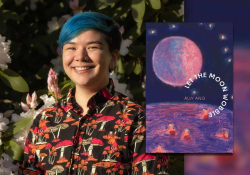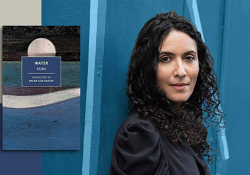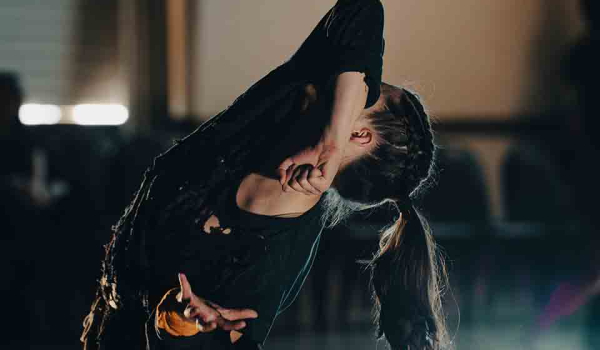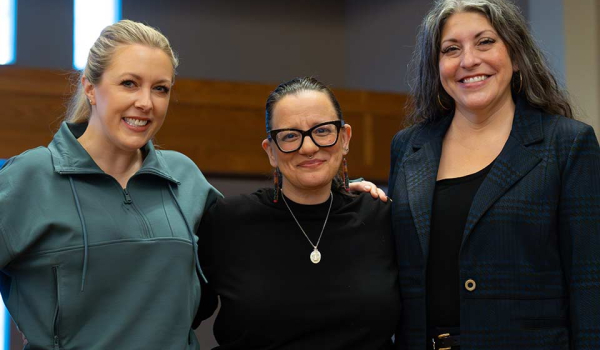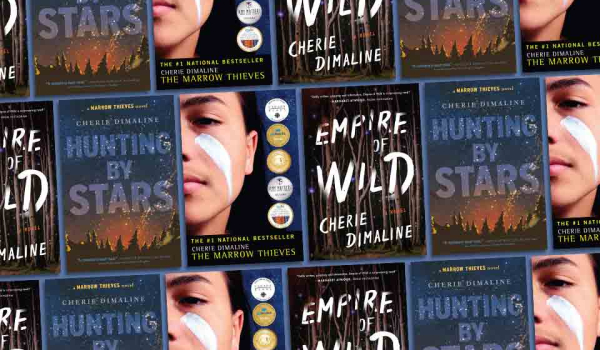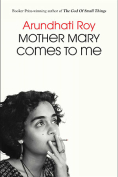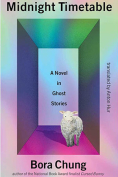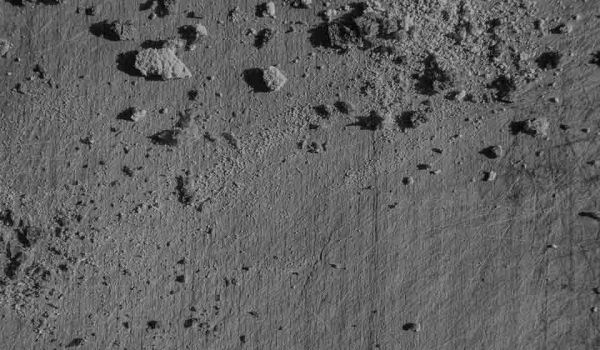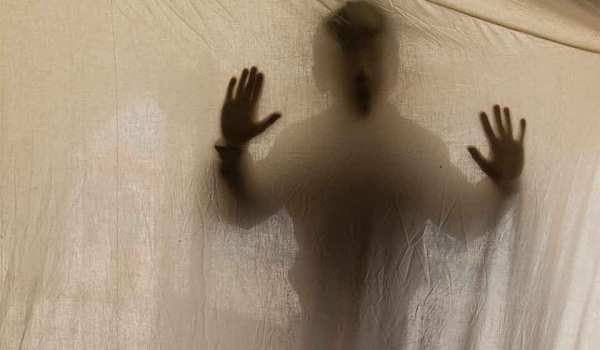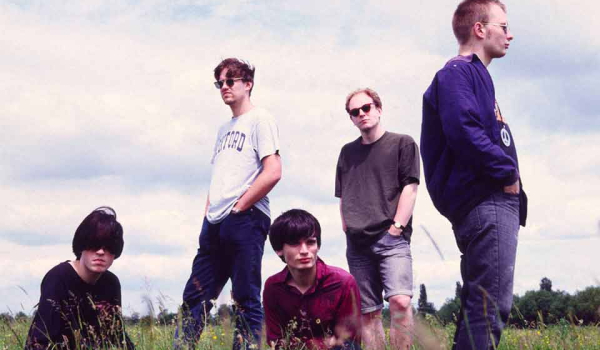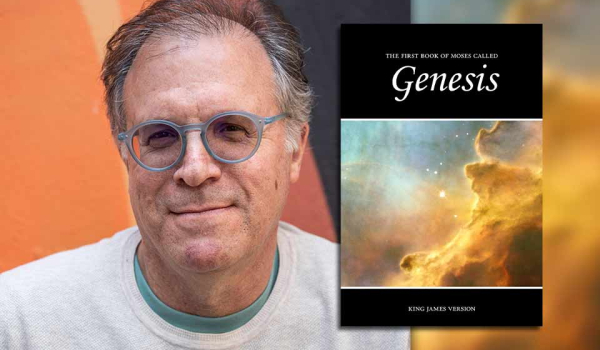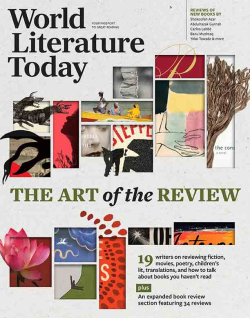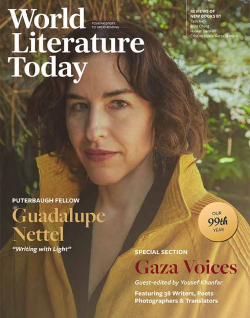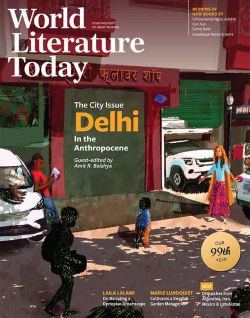The 2025 Neustadt Lit Fest, hosted by World Literature Today, took place on the University of Oklahoma (OU) campus October 20–22. Eight public events—featuring more than two dozen writers, dancers, musicians, and scholars—attracted more than a thousand attendees, including several hundred students from OU, the Norman Public Schools, and Colorado Academy.
The 2025 NSK Prize ceremony featured a video greeting from OU President Joseph Harroz Jr., a powwow exhibition dance, and the formal prize presentation by the Neustadt sisters. After receiving the award, Dimaline received a standing ovation, then delivered the following acceptance remarks.
“Her books matter because they tell stories that carry both warning and hope,” - Danny Ramadan
“away from the white-knuckle waves / wisps of fluorescence haunt the undergrowth / orange bands like blistering shoreline sores // life vests peeled off by the numb fingers of those / who staggered here before the light broke open,” from “life vests, samos,” by Kas Bernays
“[T]hus in silence he passes through / the quiet rooms of my childhood / (his cough in each doorway) / in a halo of outdated things and long-gone words / I no longer have a trace of his voice / only his cough returns as an echo,” from “Scraps of a Portrait,” by Sylvie Kandé (trans. Nancy Naomi Carlson)
“A “birthing experience,” he described, / at 82, riding the marble curve — its twist // tying a figure nine — after installing / at the Venice Biennale the stone slide, / one of his final works,” from “Slide Mantra,” by Brandon Som.
Each Leaf a Second
In a world dictated by mechanical rhythms, how can we rediscover our natural rhythms? What do literature and cinema, past or contemporary, teach us about human liberation from slavery to machines?
Rematriation, a concept advanced by Lee Maracle (1950–2021), among other Indigenous women, is “the process of restoring lands and cultures, done with deep reverence to honor not only the past and present but also the future, and rooted in Indigenous law” (IndigiNews). Here, the authors relate their own rematriation work in Oklahoma, Iraq, and beyond.
Music can reach parts of the soul that have never been touched, leading to new revelations. Here, a classical musician traces the influence of Radiohead and other bands on his own development and how music can be one path to a new place.
The news from Russia and Ukraine, places to which Yana Kane is linked by her own past and family roots, touches her deeply. For the past three years, she’s dedicated most of her creative energies to discovering and engaging with contemporary Russian-language poetry of witness and antiwar poetry that call to her as a translator.
“Look for What Feels Singular”: 5 Questions for Thomas Schlesser
An mini-interview with Thomas Schlesser, whose book Mona's Eyes, follows a ten-year-old girl whose grandfather begins taking her on outings to museums in Paris when she begins to experience temporary loss of sight.
“The Pain That Adjoined Me as a Twin Since Birth”: A Conversation with Kurdish Poet Hussein Habasch
A conversation with Hussein Habasch, a poet from Afrin, Kurdistan.
“Our Minds Are Porous and Forgetfulness Seeps In”: A Conversation on Translation and AI with Ilan Stavans
Ilan Stavans has tackled some of the most complex literary problems imaginable, ranging from piecing together the fragmentary work of poetry composed first in Nahuatl to teasing out the cultural bias in Spanish translations of that same work. With his skill in pattern recognition, recognizing bias, and evaluating multiple potential interpretations, Stavans is a perfect writer and scholar to chat with about the game-changing advent of AI.




